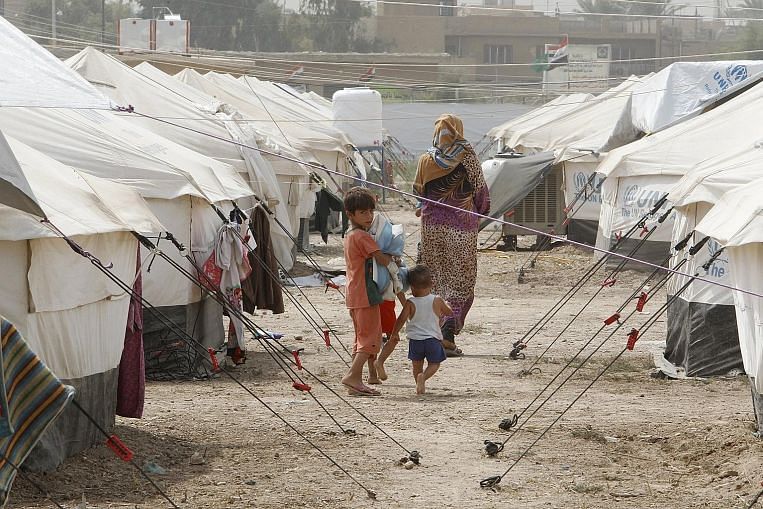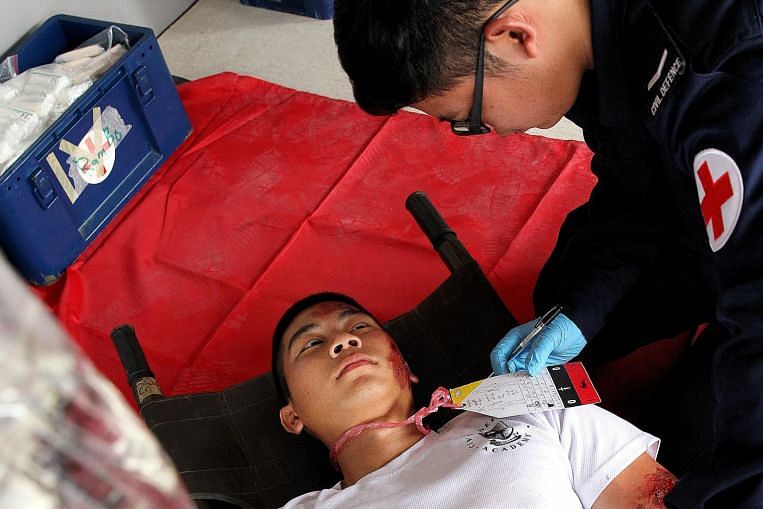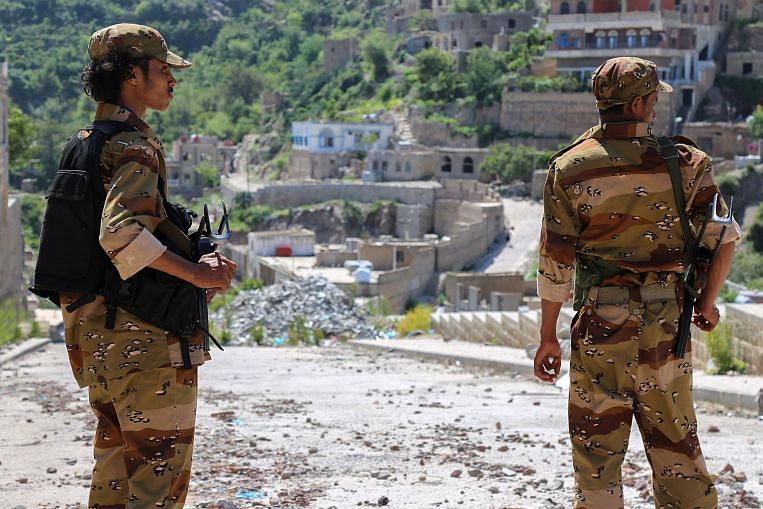Countering the ISIS threat to Singapore and the region
Insight looks at risks that the terrorist group poses to Singapore and the rest of the region.


Some two years ago, a handful of radicals from South-east Asia made their way to Syria to join fellow hardliners in a civil war.
Their numbers grew. In September last year, about 100 fighters from Indonesia and Malaysia formed a combat unit, Katibah Nusantara. One year on, their numbers have grown to around 450.
Katibah Nusantara (which literally means Malay Archipelago Combat Unit) has branched out into three groupings, fighting in different areas of Syria controlled by the Islamic State in Iraq and Syria (ISIS).
Even as a global coalition conducts air strikes on ISIS strongholds, and Russia enters the fight, the terrorist group still has more than 30,000 foreign fighters and controls an area as large as Britain, with a population of more than six million.
ISIS and its affiliates have gained control over areas in Libya and parts of the Sinai Peninsula in Egypt. And up to 30 groups in Indonesia, Malaysia and the Philippines have pledged support or had members who pledge support to ISIS.
A daily stream of updates from the front line makes its way around the world on social media, and regular videos in various languages, including Bahasa Indonesia, aim to lure new recruits to the battlefield.
At least seven Singaporeans are known to have been influenced by ISIS. Two of them are still believed to be in ISIS territory, while four have been detained in Singapore and another is on a Restriction Order.
One year after a concerted global effort to combat the terror group began, the United States said it would ramp up raids on ISIS militants in Syria and Iraq.
Meanwhile, Muslim religious leaders and communities are working to counter ISIS' distorted interpretations of their faith.
How much of a threat does ISIS continue to pose and how has it evolved? What more can be done?
Lim Yan Liang examines the issues involved.
Why are some people attracted to ISIS?

The group's establishment of a caliphate, or Islamic state, in June last year with territory under its control in Iraq and Syria means that it has achieved a status no other terrorist organisation has managed: something akin to nationhood.
This declaration of statehood received global media coverage and caught the imagination of other extremist groups worldwide - including in South-east Asia - many of which have since pledged their support to ISIS and helped spread its propaganda.
But unlike the approach of its predecessor Al-Qaeda, ISIS' propaganda does not consist solely of spotlighting Western oppression of Muslims and exhortations to retaliate violently against the West.
How much of a threat is ISIS to the region?
With the emergence and growing influence of the Islamic State in Iraq and Syria (ISIS), the threat of transnational terrorism erupting in the region has grown significantly over the past year.
While ISIS and its affiliates threaten to destabilise the entire region, Singapore faces an outsized risk for a number of reasons, say experts.
They range from Singapore's reputation as one of the most secure countries in the world today, to its status as a global hub for finance and shipping, and its close relationships with the Western world.
What is S'pore doing to counter ISIS?

The importance of Singapore's ongoing efforts to counter the Islamic State in Iraq and Syria (ISIS) came into focus last month, when at the swearing-in of the new Cabinet, Prime Minister Lee Hsien Loong gave a clear indication of the threat that the terrorists pose here.
Mr Lee announced that Deputy Prime Minister Teo Chee Hean would remain Coordinating Minister for National Security, a post he has held since 2011, even as he then unveiled two new coordinating ministers in other areas.
"The first area is national security, which remains a vital precondition of our success," said Mr Lee. "The SAF (Singapore Armed Forces) and Home Team have kept us safe, but new dangers and threats are emerging around us."
What more can be done to fight ISIS' ideology?

The terror threat has been hammered home with the fact that at least seven Singaporeans have been known to have joined or planned to join ISIS.
That the allure of ISIS' warped ideology is so pervasive, even here, must come as a shock to many.
But it is a relief that the vigilance and early detection efforts of the public and agencies such as the Internal Security Department meant that this year, five people were identified and dealt with.
Join ST's WhatsApp Channel and get the latest news and must-reads.
A version of this article appeared in the print edition of The Sunday Times on November 01, 2015, with the headline Special Report: Countering the ISIS threat to Singapore and the region. Subscribe

